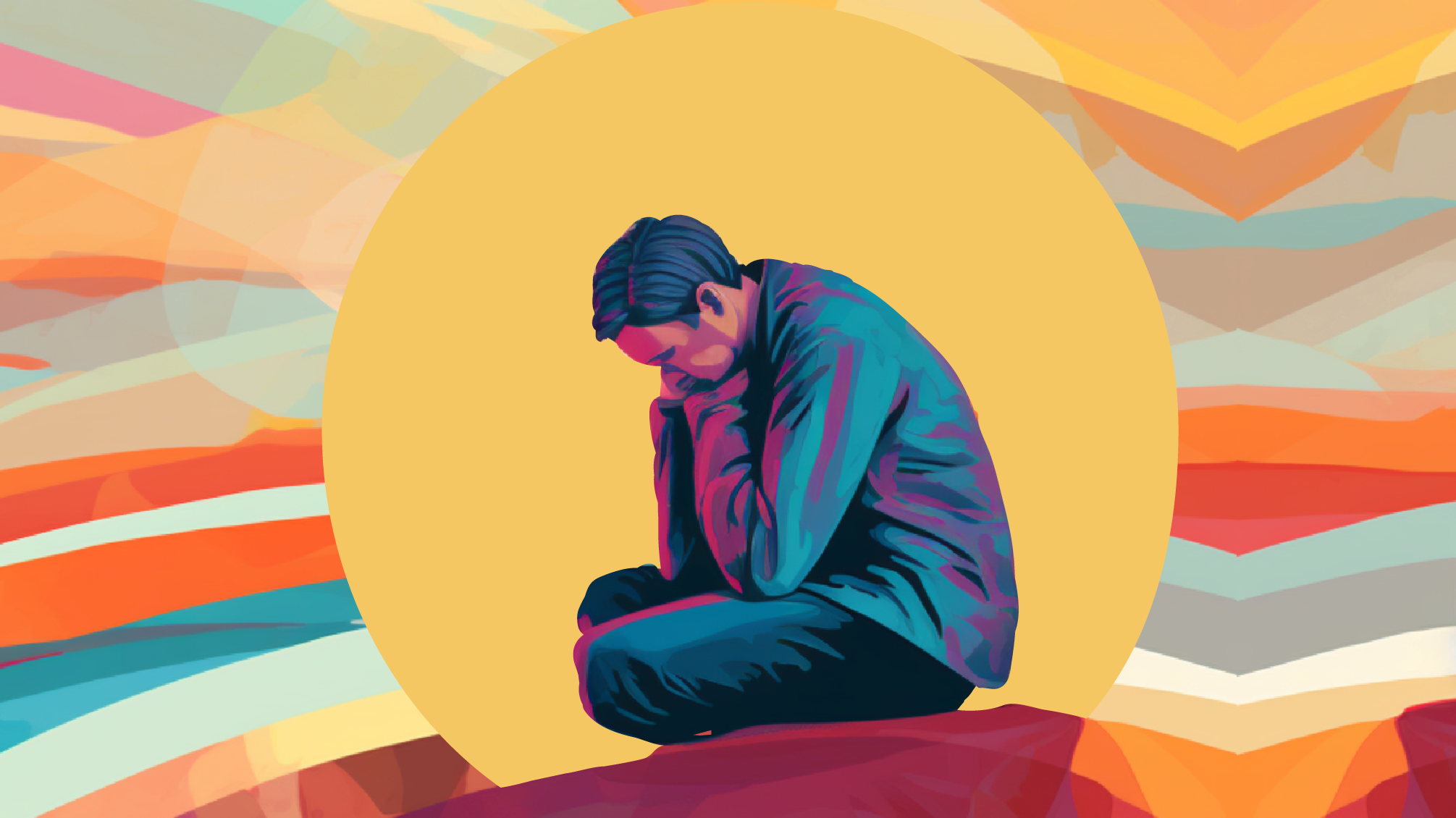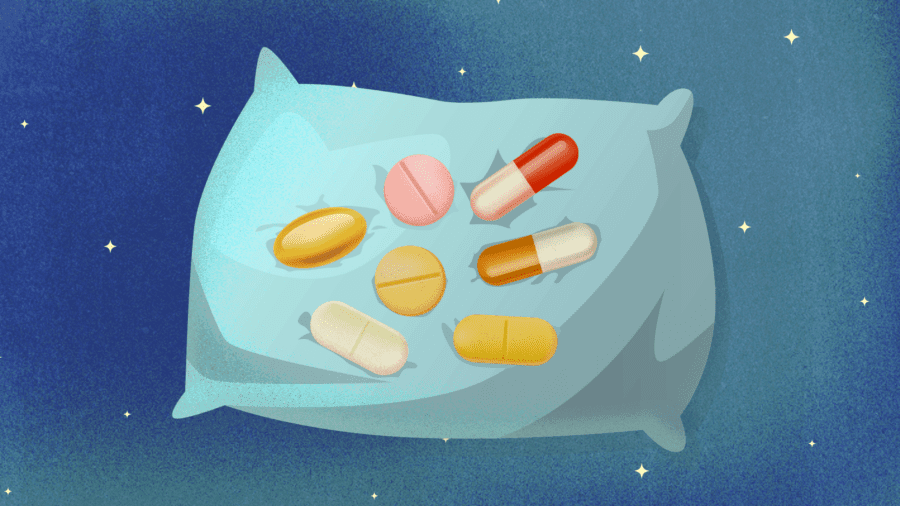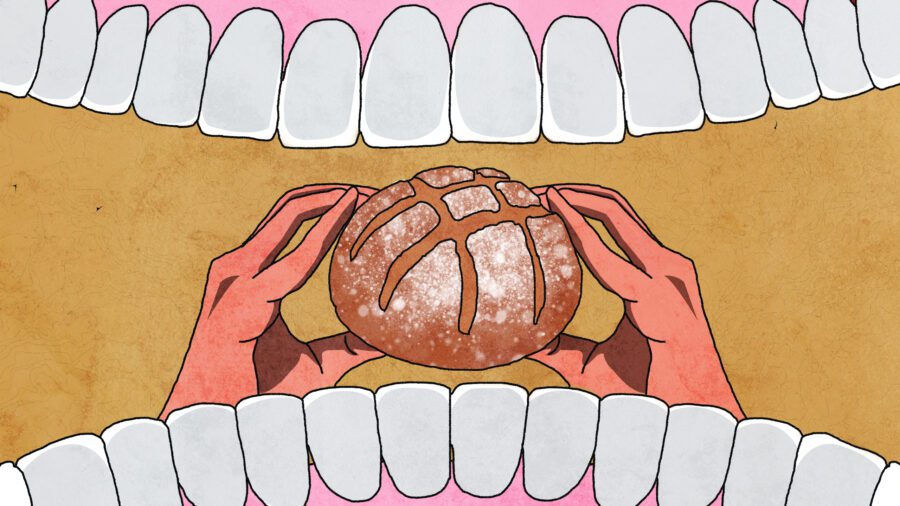
9 Reasons You’re Tired All the Time & How to 10x Your Energy
Are you tired? Have you noticed that your body feels heavy throughout the day?
Accomplishing what you need to get done in a given day requires sustained effort, focus, and determination. When we have sufficient physical and mental energy, we are more capable of progressing toward our professional and personal goals.
Sadly, numerous people struggle with low energy levels, impacting their productivity, mood, and overall well-being. Low energy can impact various aspects of your day and make it more challenging to navigate your daily responsibilities and activities.
Although being tired from time to time is normal, chronic tiredness can leave you with a range of negative effects on your physical and mental health and will ultimately decrease your productivity and, sadly, your quality of life.
For that reason, it’s critical to uncover what could be causing your tiredness. Fortunately, we’re here to help with suggestions and ideas for maximizing your energy and discovering what could be holding you back from your full energy potential.
In this article, you’ll learn nine reasons why you may be suffering from consistent tiredness and how you can increase your energy today!
Join In 500 Million+ On The Journey to Greatness
#1. Lack of Quality Sleep
Perhaps the most obvious reason why you may be tired all of the time is a lack of good-quality sleep. Sleep is critical for your energy because it is the time when your body can rest and repair itself.
During sleep, your body performs essential functions such as repairing tissues, strengthening the immune system, and consolidating memories. Without adequate sleep, your body and brain cannot perform these critical functions, leading to feelings of fatigue and decreased energy.
You need a minimum of seven hours of sleep each night — preferably at least eight — and you can increase your sleep quality with the following.
- Get plenty of sunlight first thing in the morning
- Go to bed between the hours of 10:00 PM and 2:00 AM
- Implement a guided practice to help you fall asleep, such as meditation or yoga
- Avoid lights and digital screens close to bedtime
- Ensure that your bedroom is as dark as possible
- Reduce your bedroom temperature to between 62 and 68 degrees Fahrenheit
Sleep is a magical experience that rejuvenates the mind and body and is essential for your overall well-being. Use these essential guidelines for getting a good night’s sleep so that you are more productive and happier throughout your day!
#2. You Need to Improve Your Diet and Eat Cleaner
If you’re often asking yourself, “Why does my body feel heavy and sluggish?” your tiredness could very well be caused by your eating habits. You need to ensure that you’re eating the right foods and not over-consuming foods that may curb your energy levels.
A balanced diet goes a long way in determining your daily energy, so consider opting for nutrient-dense foods that can help support sustained energy levels throughout the day. Some foods you may want to consider incorporating into your diet include:
- Fruits like bananas, apples, mangos, kiwis, pineapples, and berries
- Grains such as oatmeal, quinoa, brown rice, and spelt
- Leafy green vegetables like spinach, spring greens, and cabbages
- Calcium-dense foods such as low-fat yogurt, seeds, beans, and lentils
- Nutrient-rich proteins like eggs, grilled or baked chicken, beef liver, and fish
In addition to incorporating certain types of food into your daily diet, consider limiting foods that may cause you to experience fatigue, including:
- Refined carbohydrates such as white bread and pasta
- Fried or greasy foods
- High-processed foods like potato chips, crackers, frozen meals, and fast food
- High-sugar foods and drinks like soda, fruit juice, candy, and baked goods
You can still enjoy these foods from time to time, but consuming too much of them can impact your day.
In addition to choosing the right foods to eat, ensure that you’re getting the right number of calories daily, as eating too many or too few can directly affect your energy levels.
#3. You’re Nutrient-Deficient
You should aim to get your essential nutrients from your diet as best you can, but sometimes, that’s easier said and done. Even if you’re getting plenty of sleep and are on a balanced diet, you may still experience frequent tiredness if you lack sufficient:
- Iron
- Folate, aka Vitamin B9
- Niacin, aka Vitamin B3
- Magnesium
- Pantothenic Acid, aka Vitamin B5
- Pyridoxine, aka Vitamin B6
- Riboflavin, aka Vitamin B2
- Vitamin B12
- Vitamin C
- Vitamin D
Other symptoms of nutrient deficiency include mood swings, dry skin, rashes, acne, muscle pain and weakness, poor immune function, digestive issues, and problems with your hair and nails.
If you suspect that you may have a nutrient deficiency, it’s important to speak with a healthcare professional or registered dietitian to determine the cause of your symptoms and develop a plan to address any deficiencies.
#4. You’re Struggling with Chronic Stress
Stress is a normal part of life, but chronic stress can lead to serious health issues — increased risk of chronic disease, weakened immune system, digestive problems, mental health issues, and cognitive difficulties — as well as frequent tiredness.
Chronic stress can also cause insomnia or disrupted sleep, leading to fatigue and irritability that directly impacts your ability to take on your day. Ongoing chronic stress can even eventually lead to stress-related exhaustion disorder, also known as burnout syndrome.
Some symptoms of stress-related exhaustion disorder include:
- Physical fatigue and exhaustion, even after adequate rest
- Emotional exhaustion, such as feeling drained and emotionally depleted
- Cognitive difficulties, such as memory problems, difficulty concentrating, and reduced ability to solve problems
- Reduced productivity and motivation, causing you to feel overwhelmed and unable to meet demands
- Emotional changes such as irritability, frustration, and pessimism
- Physical symptoms such as headaches, muscle pain, and stomach problems
In order to better manage and overcome chronic stress, consider enlisting the help of a mental health professional, and make sure to practice self-care with tools like regular exercise, calming breathing, and meditation.
#5. A Health Problem Is Causing Your Tiredness
Numerous underlying medical conditions can cause fatigue as well, such as:
- Autoimmune disorders: Diabetes, lupus, and rheumatoid arthritis
- Chronic conditions: Fibromyalgia and chronic fatigue syndrome
- Diseases: Different types of cancers, kidney disease, and multiple sclerosis
- Infections: Flu, HIV, and mononucleosis (aka mono)
- Heart Issues: Heart disease, congestive heart failure, and postural orthostatic tachycardia syndrome
- Hormone Imbalances: Issues with the endocrine system and hypothyroidism
- Lung Problems: Chronic obstructive pulmonary disease and emphysema
- Mental Health Problems: Depression and anxiety
Alternatively, you could have a sleep disorder that’s keeping you from getting a good night’s rest, and these disorders often require medications and treatment. These include:
- Insomnia: difficulty falling asleep, staying asleep, or both.
- Narcolepsy: a neurological disorder that manifests in excessive daytime sleepiness, sudden and uncontrollable episodes of falling asleep, and disturbed sleep patterns.
- Sleep Apnea: having pauses in breathing or shallow breaths during sleep.
If you suspect that you have any of these conditions, please visit a qualified medical professional so that they can diagnose the issue and help you on the path to recovery.
#6. You’re Struggling with Dehydration
We all know it’s important to stay hydrated, but with our busy professional and personal lives, it can be easy to neglect this necessity. Proper hydration is crucial for maintaining energy throughout your day, and you also need adequate hydration in order to maintain focus.
Unfortunately, there’s not an exact amount of water you should drink daily because every person is different, but you can be on the lookout for dehydration symptoms like headaches, dry mouth and eyes, dizziness, infrequent urination, thirst, and, of course, tiredness.
Consider implementing these helpful habits to ensure you’re staying hydrated throughout your day:
- Carry a water bottle
- Set reminders to drink water throughout the day
- Establish a routine of drinking water at certain times of day
- Drink water before you’re thirsty
- Reduce your consumption of diuretics like coffee, alcohol, and sugary beverages
- Add healthy flavoring to your water, such as fruits or herbs
When in doubt, consume water, especially if you live in a hot or humid climate or maintain an active lifestyle.
#7. You’re Consuming Too Much Caffeine
Caffeine is a wonderful thing — it empowers us to feel more awake, makes us mentally alert, and even improves our cognitive functions. That said, too much of anything can be bad, and if you’re consuming too much caffeine, you may rely on it too heavily for your energy, and you can even eventually develop a caffeine addiction.
According to the Food and Drug Administration, you should avoid consuming more than 400 milligrams of caffeine per day if you’re an adult. Otherwise, your body won’t be able to metabolize it properly, leading to negative effects such as insomnia, nausea, anxiousness, and more.
There’s no official recommendation for those under 18, but research indicates that caffeine negatively affects childhood and teenage development.
Additionally, you should never drink caffeine in the afternoon unless you’re a shift worker, as this will disrupt your sleep cycle and negatively impact your overall health.
Caffeine has a half-life of around five to six hours, meaning it takes five to six hours for your body to eliminate half of the caffeine consumed. Consuming caffeine in the afternoon or evening can interfere with the quality and duration of your sleep, making it harder for you to fall asleep and causing you to wake up feeling groggy and tired the next day.
#8. You Need More Exercise
Exercise offers tremendous benefits for our short and long-term health, including our energy levels.
One incredible study indicated that incorporating low-intensity or moderate-intensity exercise into your routine can greatly enhance your energy levels in just six weeks. An important note is that the study used a sedentary group, so if you already have a consistent fitness routine, exerting yourself further won’t necessarily give you additional energy.
Regular physical activity releases endorphins —the “feel-good” hormones — making you feel more energized throughout your day. Exercise can also improve your sleep quality, empowering you to feel all the more awake and ready to take on the day.
Exercise can also help you lose weight when paired with a healthy diet, which may further improve your energy levels if you’re medically obese. Regular physical activity can also reduce your risk of chronic diseases such as heart disease, stroke, diabetes, and certain types of cancer.
Pretty awesome, right?
The American Heart Association recommends getting at least 150 minutes of moderate-intensity aerobic exercise — speed walking, hiking, and dancing — or 75 minutes of vigorous aerobic exercise — running, swimming, and jumping rope — every week.
#9. Too Much Alcohol
Drinking alcohol at night can cause you to feel more tired during the day because it disrupts your sleep. This may come as a surprise because people often feel sleepy after drinking, but the reality is that alcohol reduces your sleep quality.
Alcohol can significantly hurt Rapid Eye Movement (REM) sleep quality and duration. REM sleep is a vital sleep cycle stage that handles memory consolidation, emotional regulation, and overall cognitive functioning. Consuming alcohol before bed has been shown to reduce the time spent in REM sleep, making it harder for individuals to feel fully rested and alert the following day.
Drinking before bedtime can also disrupt sleep, causing individuals to wake up frequently throughout the night. As a result, individuals who consume alcohol before bed may experience fatigue, difficulty concentrating, and mood changes during the day, which can negatively impact their overall health and well-being over time.
You should be especially careful with alcohol if you have sleep apnea, as alcohol can worsen this disorder. When a person experiences this disorder, their airway becomes partially or completely blocked, leading to loud snoring, gasping, or choking.
Alcohol relaxes the muscles in the throat, making it more likely that the airway will become blocked during sleep, exacerbating sleep apnea symptoms. Plus, alcohol consumption decreases the amount of oxygen in the blood, which can lead to further complications in individuals with sleep apnea.
Get a Better Night’s Sleep and Optimize Your Energy
Adequate sleep is a must for getting the most out of your day, as it directly relates to your cognitive functions, mood, and memory. But there could be another component keeping you from maximizing your energy, such as a habit that’s not serving you or a health problem.
If you’re struggling to get a good night’s sleep or are feeling tired throughout your day, we hope this article helps uncover the underlying problem that may be keeping you from being your best self.
You can learn more about getting a great night’s sleep and boosting your energy on Greatness.com.
Cheers to you for prioritizing your health and energy! It takes courage and dedication to make positive changes, and YOU are capable of making improvements today.
Greatness Authors
Greatness Authors is a collection of writers, thinkers, curiosity experts, and students of the world who are committed to bringing you the most up-to-date, impactful, and inspiring information surrounding Greatness topics.

Do You Have to Be a Morning Person to Be Successful? Here’s What Both Sides Have to Say

How to Have a Healthy Romantic Relationship Even if You Share Different Beliefs

The 7 Best Vitamins to Naturally Promote Better, Uninterrupted Sleep According to Shawn Stevenson

The Science of Forming Healthy Habits & Letting Go of Bad Ones, According to Author James Clear

The Secret of Sourdough: Why This Bread Is Actually Great for Your Gut (Plus, How to Make Your Own!










